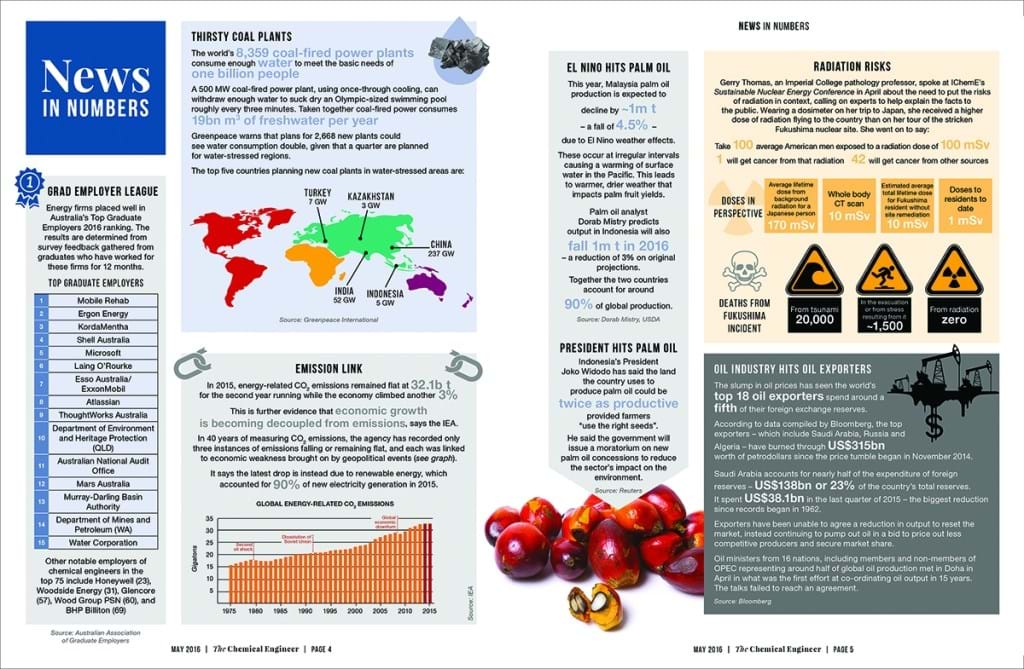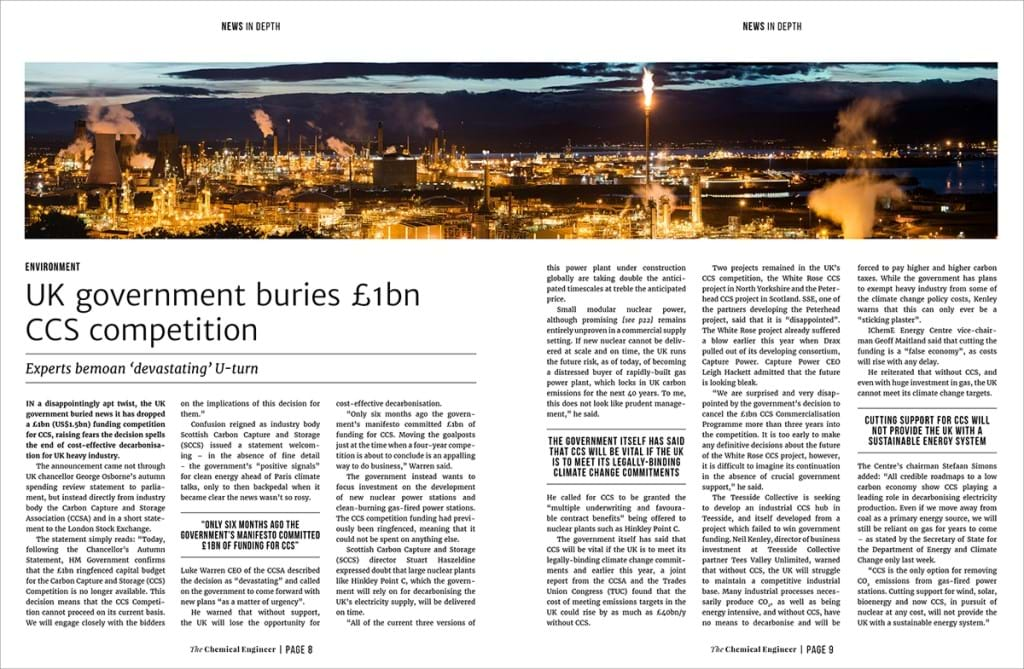Guest blog: Reporting on the stories that matter

12th May 2016
Today's guest blog comes from IChemE's very own Adam Duckett, who is edits our magazine, The Chemical Engineer.
Name: Adam Duckett
Job: Editor, The Chemical Engineer
Joined IChemE: 2005
"You edit a magazine about chemical engineering?” repeated the man fixing my washing machine, “Blimey, that sounds really boring!”
It’s refreshing to meet someone so willing to wear their heart on their sleeve, and of course all the more pleasing to have spent the next half hour proving him completely wrong. The truth is that chemical engineering touches almost every aspect of our lives, it’s just that so few of us realise it.
IChemE’s members – chemical, biochemical, and process engineers – work in a diverse range of sectors including water, energy, food and pharmaceuticals, applying their skills from raw material extraction and processing, through to the manufacture of finished goods.

Climb out of bed in the morning and clean your teeth (chemical engineers played a key role in the manufacture of the toothpaste); turn on the shower (chemical engineers helped clean the water, and extract and clean the natural gas that heats it); dig into a bowl of cereal (the metal in the spoon, the plastic bowl, and the cornflake itself …you get the picture, and you haven’t even left the house yet!).
So it was armed with specific examples of the stories we’d been covering online and in the magazine that month, that I convinced the repairman that he ought to sit up and take notice of chemical engineers and the crucial role they can play in solving some of the world’s most pressing issues.
We discussed whether he’d eat lab-grown meat (sustainable food production); would support the construction of new smaller nuclear power plants in his district (carbon free energy and combating climate change); or approves of genetically modifying microbes to turn forestry waste into chemicals (recycling and the transition to a post-fossil fuel society).
These bracketed issues touch all of our lives, and we each have a vested interest in their outcomes.
Reassuringly, the feedback on the publication from readers is predominantly very positive – and the magazine is often cited by members as their preferred way of staying in touch with the community and a key member benefit. That carries its own pressure to stay relevant and keep improving the service. Thankfully, I’m fortunate enough to work with a hugely passionate editorial and production team that despite its small size punches well above its weight.
At the end of last year we published our first ‘new look’ issue having changed everything from the title (reverting back to The Chemical Engineer from tce), the page size, page layouts, fonts, and introducing new feature series).

These changes were made in part with consultation with members. We had asked what was missing from the magazine and the number one request was for a more technical series that teaches practical skills. This ‘How To’ series along with the introduction of an infographic-driven ‘news in numbers’ section has been very well received.

Furthermore, we’ve established new sections for members to give thought leadership on current affairs topics (the latest issue includes a contribution on how the Tata Steel crisis could be turned into a national advantage); a series for experts to raise awareness of pressing challenges in their own sector and how the community can help; and a section for experts to discuss how our readers go about being engineers, examining topics such as best practice in communication, mentoring, leadership and whistleblowing.
These sorts of features help strengthen the community-focus of the magazine, providing a voice for readers and a space for them to cross-pollinate ideas.
I think we’ve struck a very good balance of topical news both related to the Institution’s activities and the wider world, technical insight, thought leadership, and opinion – plus it looks really good too, if I do say so myself.
I’m fortunate enough to regularly get out and about to meet albeit only a small proportion of IChemE’s 44,000-strong membership. The feedback I get is positive and it’s always a good way to find new stories, new contributors, and ideas for how we can improve the magazine. The members we serve are an invaluable resource!
Of course, we’re not resting. Future plans for development include improving our app to enhance the user experience on phones and tablets, and much more beside.
Onwards and upwards!
If you’d like to read a digital version of a recent printed issue of the The Chemical Engineer, visit: www.thechemicalengineer.com
If you would like to be featured on IChemE's ChemEng blog, please get in touch.
This blog post was originally published by PARN, the Professional Associations Research Network.